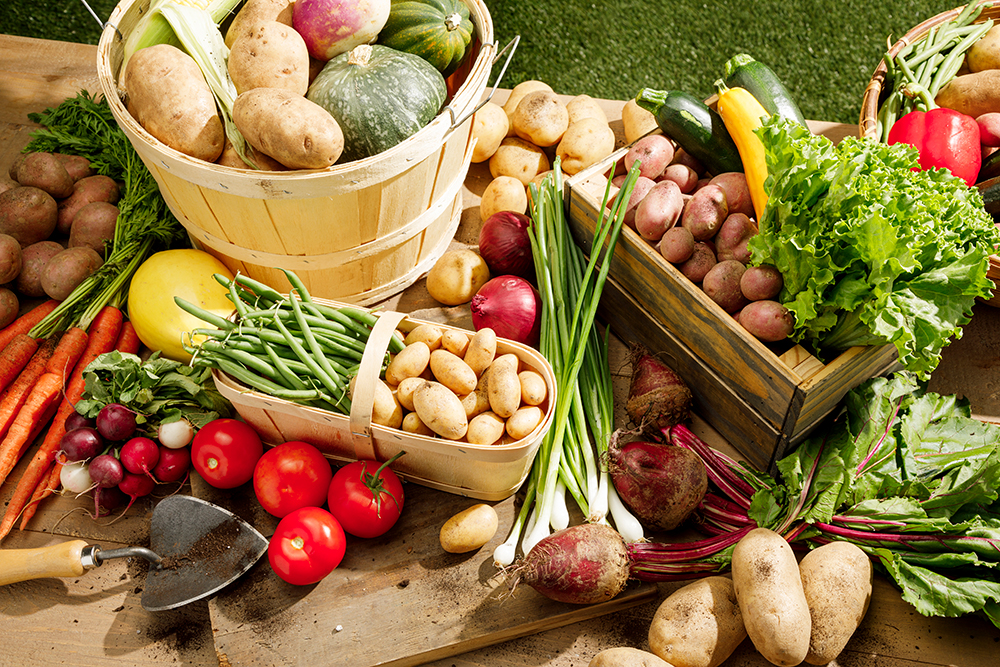Potatoes are a misunderstood vegetable with a bad reputation. It’s time to set the record straight and clear up some preconceived ideas about them! We want to make sure that you’re no longer afraid to cook this versatile tuber.
1- Potatoes Are Fattening and Only Contain Carbs
Potatoes are way more than just starch and carbohydrates! They are well-rounded vegetables that have a good nutritive value, which makes them a great addition to your diet. The average potato with the skin has as much vitamin C as three peaches! They’re also rich in potassium and iron, in addition to containing lots of fibre. What’s more, a fibre-rich diet promotes the feeling of satiation and contributes to healthy weight management.
2- Potato Skin Is Not Good for You
Many think that potato skin has a low nutritional value. Quite the contrary! It’s actually the best part of the potato. It’s a concentrated source of nutrients and, at an equal weight ratio, it contains 2 to 3 times more fibres than the flesh. Half a cup of potatoes with the skin has the same amount of iron as a cup of raw spinach. So when you can, do not hesitate to keep the skin on your potatoes, and you will maximize the amount of nutrients and fibres in your meal.
3- You Can’t Store Potatoes in the Refrigerator
Potatoes can be kept in the refrigerator, especially if they are “first earlies” or “second earlies,” meaning that they are harvested from July to August. Their skin is still very thin, which is why, for optimum preservation, they should be stored directly in their plastic bag in the refrigerator or in the vegetable drawer.
Potatoes that have thicker skin, generally harvested in early September, can also be kept in the drawer of the refrigerator. However, if you want to maximize the shelf life of your potatoes, it is better to keep them in a paper bag, in a cool (around 7 °C) and dry place, away from daylight.
4- You Can’t Eat Sprouted Potatoes
If tiny white sprouts or “eyes” appear on your potatoes, it means that they have started to sprout. No worries! At that stage, the potatoes are still edible. You simply have to remove the sprouts before cooking the vegetables. Sprouted potatoes must be thrown in the compost bin if:
- they are withered.
- they are limp.
- the sprout is well developed.
A good way to prevent sprouting is to keep the potatoes in a dry and cool space, away from natural light!
5- Potatoes Are Inflammatory
Another popular myth is that potatoes, which are a part of the Solanaceae family (along with tomatoes, eggplants and peppers) can cause inflammation and should be avoided by people who suffer from inflammatory diseases such as arthritis. However, potatoes have anti-inflammatory proprieties because of their high vitamin C and potassium levels. So they’re not to be avoided!


